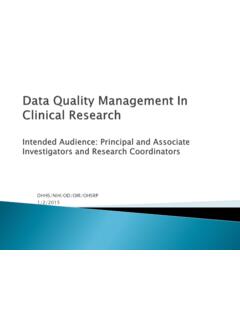Transcription of Character education framework guidance - GOV.UK
1 Character education framework guidance November 2019 2 Contents Summary 3 Expiry or review date 3 Who is this publication for? 3 Background 4 The Six Character Benchmarks 4 The Definitions of Character 6 Rationale for the benchmarks 8 Equality 10 Next Steps 10 Annex A where to get help 12 Annex B case studies 19 3 Summary 1. This document is new non-statutory guidance to schools1 on Character education and development for pupils. 2. This guidance is based on recommendations from the advisory group on Character established in April 2019, chaired by Ian Bauckham CBE and with members including headteachers and the leaders of teaching trade unions NAHT and ASCL.
2 The group s recommendations draw on a written call for evidence held between 27 May and 5 July 2019 and a series of meetings with stakeholders, including teachers, headteachers, parents, voluntary sector organisations, businesses, and young people themselves. Expiry or review date 3. This guidance is due to be reviewed in November 2020. Who is this publication for? 4. It is intended for use by school leaders and teachers when considering the rationale for Character education and some wider aspects of personal development, and the practicalities of provision and delivery.
3 1 References to schools mean all publicly-funded schools including academies and free schools, Pupil Referral Units, alternative provision settings, special schools and privately-funded independent schools. 4 Background 5. education for Character is already integral to the work of excellent schools. In these schools there is no tension between a rigorous and stretching academic education on the one hand and outstanding wider personal development on the other. Indeed, these and other aspects of the school s work all contribute to forming well-educated and rounded young adults ready to take their place in the world.
4 6. Schools have a statutory duty, as part of a broad and balanced curriculum, to promote the spiritual, moral, social, and cultural (SMSC) development of pupils and prepare them for the opportunities, responsibilities and experiences of later life2. Character education contributes to this duty to promote SMSC. The duty applies to academies and free schools through the Independent School Standards. 7. The Relationships, Sex and Health education Statutory guidance (which applies to all state funded schools) makes clear that this is most effective when schools also actively promote good behaviour and positive Character traits, including for example courtesy, respect, truthfulness, courage and generosity.
5 8. Schools have an important role in the fostering of good mental wellbeing among young people so that they can fulfil their potential at school and are well prepared for adult life. Schools with clear expectations on behaviour and with well-planned provision for Character and personal development can help promote good mental wellbeing. 9. From September 2019, Ofsted inspections recognise the importance of schools provision for Character education through its inclusion in the new judgement on Personal Development in all Section 5 and Section 8 inspections.
6 The Six Character Benchmarks 10. These benchmarks summarise the most important features of good provision for Character education and are intended to assist schools in evaluating their own work and planning for development. A. What kind of school are we? How clearly do we articulate the kind of education we aspire to provide? How do we ensure that all members of the school community ( staff, pupils, parents/carers, governing body) understand and share our aims? How effectively do we create a sense of pride, belonging and identity in our school?
7 2 Section 78 of the education Act 2002 5 B. What are our expectations of behaviour towards each other? Are we clear on the importance of discipline and good behaviour in school life? How do we promote this understanding? How well do we promote consideration and respect towards others (pupils and adults), good manners and courtesy? How well do we promote a range of positive Character traits among pupils? C. How well do our curriculum and teaching develop resilience and confidence? Is our curriculum ambitious for our pupils?
8 Does it teach knowledge and cultural capital which will open doors and give them confidence in wider society? Is our curriculum logically organised and sequenced, including within subjects, and taught using effective pedagogy, so pupils gain a strong sense of progress and grow in confidence? D. How good is our co-curriculum ? Does it cover a wide range across artistic, creative, performance, sporting, debating, challenge, team and individual etc. so all pupils can both discover new interests and develop existing ones?
9 Do we make use of or promote local, national or international programmes or organisations? ( uniformed organisations, Duke of Edinburgh, National Citizen Service etc.) Is provision of high quality and does it challenge pupils and build expertise? Is participation sustained over time? Are there ample opportunities for pupils to compete, perform etc., and is success acknowledged and celebrated? E. How well do we promote the value of volunteering and service to others? Are age-appropriate expectations of volunteering and service to others clearly established?
10 Are opportunities varied, meaningful, high-quality and sustained over time? Do volunteering and service opportunities contribute to breaking down social barriers? Are they effective in making pupils civic-minded and ready to contribute to society? 6 F. How do we ensure that all our pupils benefit equally from what we offer? Do we understand and reduce barriers to participation ( cost, timing, location, logistics, confidence, parental support etc.)? Do we enable young people from all backgrounds to feel as if they belong and are valued?















